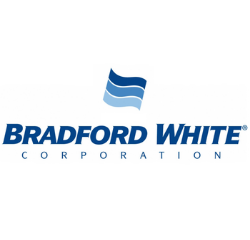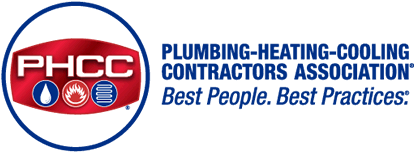
By Bradford White Corporation
Happy New Year everyone! After what we at Bradford White hope was a relaxing holiday season for you and your family, legislative and regulatory bodies at all levels of government are beginning to go back to work. In this post, we’ll examine what we expect to see from them in 2024 at each level of government, and how it may impact the HVAC industry.
Federal
The United States Department of Energy (DOE) is working on several rulemakings that will be impactful to Bradford White products that are expected to be finalized this year. Perhaps the two most impactful will be likely upcoming final rules for minimum energy conservation standards for both residential water heaters and boilers.
For residential water heaters, DOE proposed new efficiency standards in late July 2023. These standards would essentially require all electric storage products (except for some lowboy models) to utilize heat pump technology; call for all gas tankless products to use condensing technology; and significantly increase minimum efficiency standards for gas-fired storage products. While DOE is not proposing all gas storage products to utilize condensing technology, the proposed standards would likely require a flue damper or fan assistance and will likely eliminate products with standing pilots.
While it is unclear exactly when in 2024 DOE will issue a final rule on this matter, they recently released a regulatory agenda that indicates they will act sometime in April 2024. If so, federal law would require a five-year compliance runway, making the provisions described above effective in April 2029, absent any changes to this proposal by DOE in the final rule.
Residential boilers are also facing significant changes. As proposed by DOE last summer, all residential boilers would be required to utilize condensing technology. Like residential water heaters, it is unclear as to when this rule may by finalized by the Department, but their regulatory agenda indicates DOE’s plans to do so sometime this summer. Once again, barring any changes to last year’s proposal, five years after a final rule is published by DOE, all residential boilers would need to utilize condensing technology.
Apart from DOE actions, the federal government continues to work towards implementation of the Inflation Reduction Act (IRA). Among the many provisions in the bill, the IRA offers individual income tax credits up to $1,200 ($2,000 for heat pumps) to homeowners who install energy efficient appliances in their home. Additionally, the bill creates a federal rebate program, administered by state governments, for low-to-medium income households who seek to install energy efficient equipment. The details of the rebate programs will be developed by individual state governments with the approval of DOE. As such, it is important to understand that a rebate program that is operating in one state, may not be the same as one operating in another. BWC Government and Regulatory Affairs staff will be continuing to watch these developments and is available to assist you with finding information that is specific to your state as it relates to the IRA.
State
Speaking of the states, all but four states are expected to convene their legislative sessions within the next several weeks. We fully anticipate that reducing greenhouse gas emissions and decarbonizing buildings will continue to be a topic of discussion in some areas of the country. Already there are bills that have been introduced that either publicly finance building electrification projects or significantly restrict the expansion of natural gas infrastructure. These exist in Maine, Massachusetts, New York, Virginia, and Washington. This list is expected to grow as we move further into the year.
In addition to legislative action, Building Code Councils in some states have been active in promoting the use of heat pumps as the preferred method for space and water heating at largely the exclusion of any other technology. This has especially been the case in California and Washington, who continue to work on revising their state building energy codes for both commercial and residential buildings. BWC Government and Regulatory Affairs maintains a comprehensive tracking system of all pieces of state legislation and regulation that are potentially impactful to our industry. If you believe you could benefit from this information, please do not hesitate to reach out to us directly.
Local
Local governments such as Denver, Seattle, and several municipalities throughout California, have enacted all-electric building codes for new residential and some commercial construction. While the United States 9th Circuit Court recently ruled that enacting such codes violate federal law, we expect that many governments who have enacted such policies in the past will begin to search for ways to accomplish the same goals, while not running afoul of federal laws and regulations, including this Circuit Court decision.
As such, it is possible that there will be a flurry of activity on the local level of government that would have impactful consequences to our industry. Given the sheer number of local governments that exist throughout the United States, it is very difficult to know about all of these provisions before they take effect, let alone introduced for debate and consideration. For that reason, Bradford White’s Government and Regulatory Affairs staff needs your help to monitor all this activity. If you know of or hear about a local government proposal that will impact your business and/or our industry, we would like to know about it. Our government and regulatory affairs team can be reached at BWCGovReg@bradfordwhite.com.
